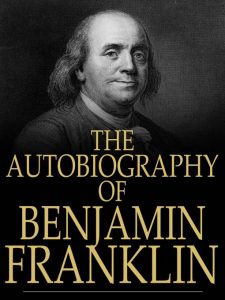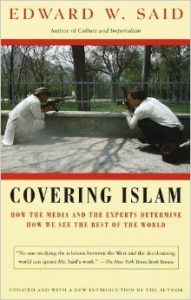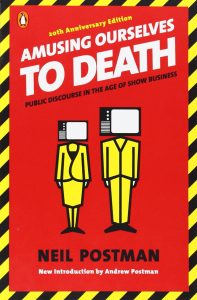In The Autobiography of Benjamin Franklin, Franklin wrote about his life with the idea of improving “the circumstances of mankind” (17). Written during the Age of Reason and the Enlightenment, he wrote his autobiography with the thought of adding value to the “art of living and the best means of cultivating the intellect and character” (19). Unlike “university-trained scholars who wrote to please the critics” during this time, Franklin wrote his autobiography to motivate people to improve their lives through hard work, to educate people on the importance of living a virtuous life and to show people that knowledge serves as a huge asset to growth and rise in the hierarchy of society (18).
Franklin provided an account of his childhood experiences and his growth as man in Part One of The Autobiography. He stated that he wrote about his childhood experiences to inform his son of the “circumstances of his life” (43). Franklin also wrote about his past because there were things he wanted to correct, but he realized that he could not do it. Thus, he decided to make a “recollection of his life” (44). Born as the fifteenth of 17 children in a middle-class family, Franklin noticed his interest for writing at an early age. Instead of working in the trade business all of his life, Franklin embraced the spirit of the Enlightenment. His thirst for knowledge and his drive to improve his writing and debate skills put him on a platform to achieve success in many areas. As Franklin grew older, his writing led him to explore the ideals of “truth, sincerity and integrity” (117). This served as the basis for his philosophical and moral approach to improve on the issues that mankind faced in society.
Part II of The Autobiography began with two letters, one from Mr. Abel James and the other from Benjamin Vaughn. These letters gave Franklin not only the confidence to continue his autobiography, but they served as the basis for him to explain the importance of “virtues” to mankind. (149). Franklin wanted “moral perfection” (148). He created a list of 13 virtues that he thought would help him reach his goal. Franklin, however, did not reach his goal of perfection. He learned “a benevolent man should allow a few faults in himself to keep his friends in countenance” because “a perfect character might be envied and hated” (156). Franklin’s ability to write about his pride clashing with his humility illustrated the importance of living a good life in light of achieving success, something that still limits people from reaching their greatest potential in society today.
Early in his life, Franklin valued the concepts of seeking knowledge for the betterment of society. In Parts Three and Four of The Autobiography, Franklin’s writing and debate skills led to his rise as a political and public affairs leader in society. He started an idea of creating the international Party for Virtue that “focused on the great affairs of the world, the Wars, Revolutions, the power of God and immorality of the Soul” (162). He wrote Poor Richard’s Almanac as a reference for common people, saying “it is hard for an empty sack to stand upright” (164). Other publications he wrote, such as the “Proposals Relating to the Education of Youth and Plain Truth”, led to the building of the University of Pennsylvania and expand colonial defense in the Seven Years War (183). From providing light, inventing the fire brigade, working as the Postmaster General of the United States to finding dollars to start a hospital, Franklin fulfilled his goal of improving the living conditions of mankind through the use of written word. “That as we enjoy great Advantages from the Inventions of others, we should be glad of an opportunity to serve others by any Invention of ours, and this we should do freely and generously” (192).
While literacy was low in the 18th century, Franklin’s autobiography explained the ideas today’s society and provided evidence that through knowledge and hard work pave the way for success in society.



